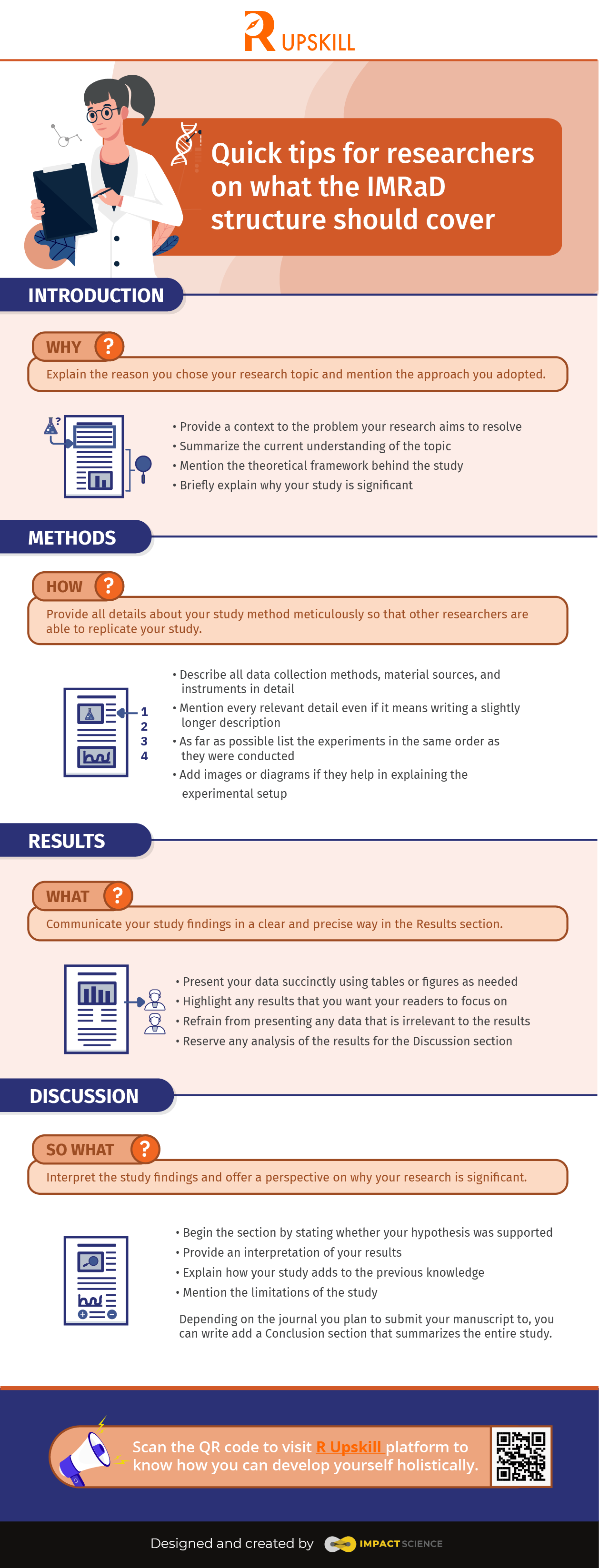Tips to impress journal editors by structuring your manuscript effectively

Conducting research requires one to put in weeks and months of hard work and perseverance. Now that you have sailed through that stage, your next step is to write a research paper to disseminate your results. Communicating your research effectively can help increase the outreach and impact of your research.
Several researchers find writing a good research paper a daunting task since few receive formal training in academic writing. However, it can be a rewarding process where you get to present your hard work in a powerful and engaging way. So are you ready for some handy tips and guidelines to help you write a great paper?
The structure of a research paper
Before we jump into the discussion on what to include in the different parts of a manuscript, let us turn to the question that may have crossed your mind: Why is the structure of the manuscript so important? Presenting your research in a clear and easy-to-follow format can help the reader understand and absorb the information you present with ease. It can also help amplify the significance of your research in a way that will improve its impact.
Most research manuscripts follow the IMRaD format, which stands for Introduction, Methods, Results, and Discussion. The infographic below highlights some of the most important components that every section should cover.

How R Upskill can help you communicate effectively through your writing
Are you feeling more confident of structuring your manuscript? Well, this is just the tip of the iceberg that is academic writing! This post provided an overview of the most important elements your manuscript should include in order for it to be effective. To continue your journey to master research communication and handle any academic writing task with confidence, consider signing up for R Upskill All Access Pass.
Some distinctive aspects of R Upskill are:
- Researcher-led programs: With 80+ expert-led programs created by academic leaders, you will find a course for every challenge be it writing and formatting a research paper, securing funding, promoting research, coping with mental stress, or more.
- Practical and easy learning: Get access to practical tips, templates, cheat sheets and case studies to help you navigate the publication process with ease.
- Multiple formats to suit varying learning needs: From bite-sized modules that you can complete over a cup of coffee to videos, webinars, handbooks, and more, there is something to suit each learning style.
- Publication coaches: Access to personalized publication coaches who will guide you through any questions or challenges. Whenever you need assistance you can turn to your coach.
- Completion certificates: Understanding the value of the effort you have put in acquiring a new skill, researchers receive a completion certificate after every program.
Visit the R Upskill platform to know how you can develop yourself holistically.
You're looking to give wings to your academic career and publication journey. We like that!
Why don't we give you complete access! Create a free account and get unlimited access to all resources & a vibrant researcher community.

This content belongs to the Manuscript Writing Stage
Translate your research into a publication-worthy manuscript by understanding the nuances of academic writing. Subscribe and get curated reads that will help you write an excellent manuscript.





![INFOGRAPHIC: [DOWNLOADABLE] How to write the rationale of your… INFOGRAPHIC: [DOWNLOADABLE] How to write the rationale of your…](https://cdn.editage.com/insights/editagecom/production/styles/card_image/public/pexels-tima-miroshnichenko-6550408%20%281%29.jpg?itok=2kv9_JFl)
View Comments